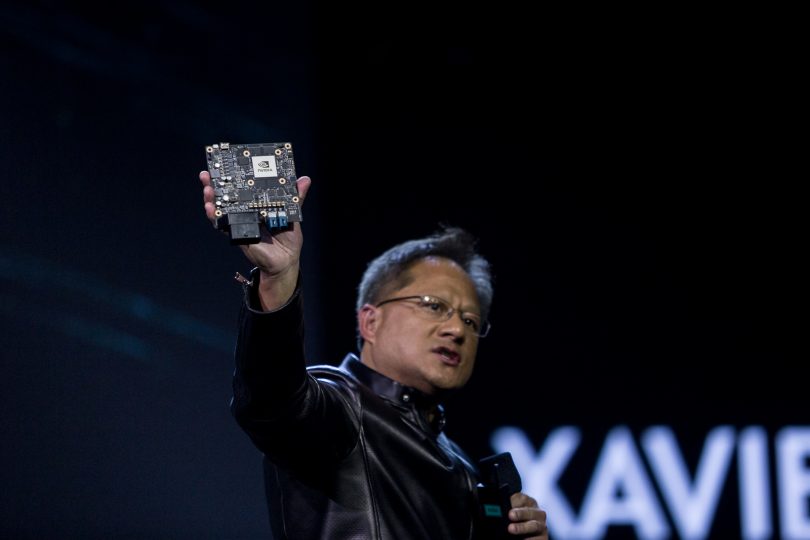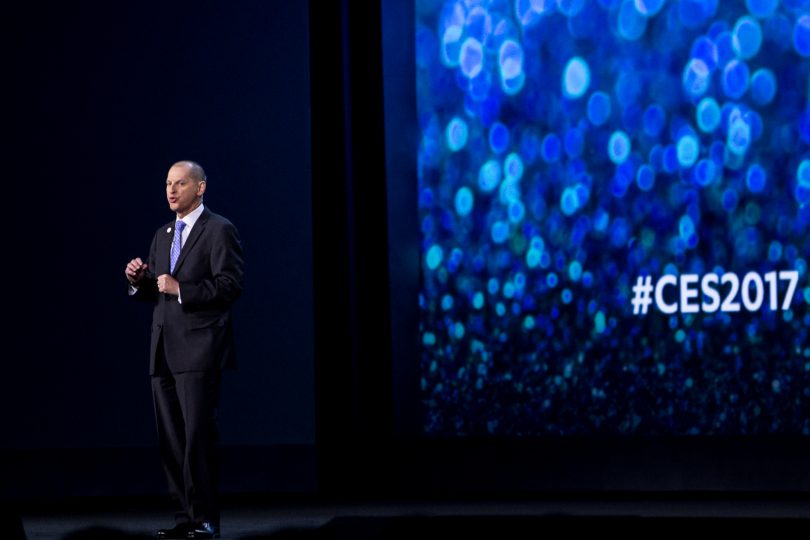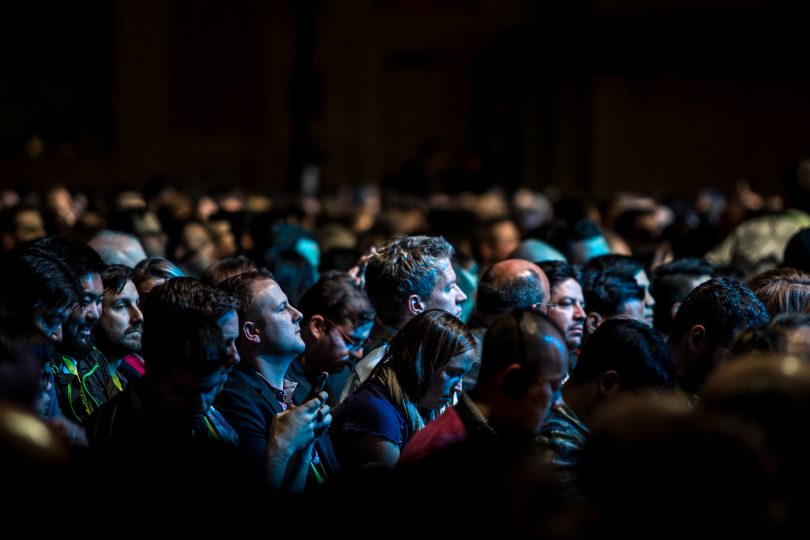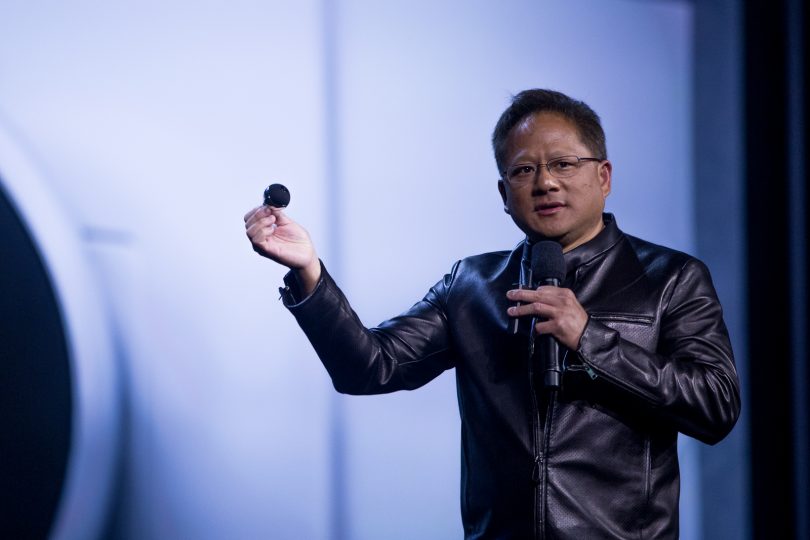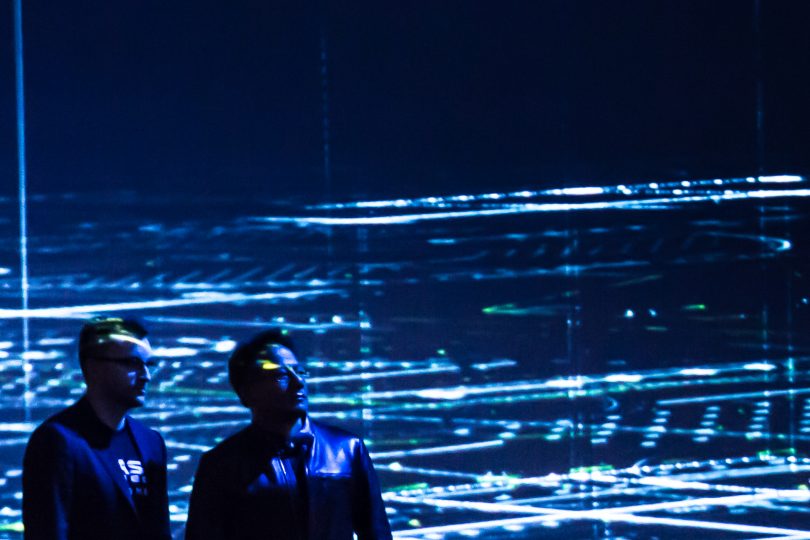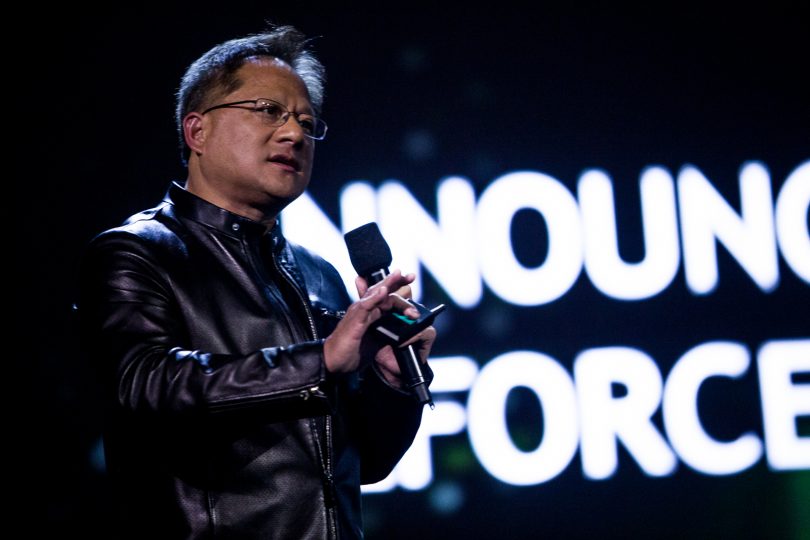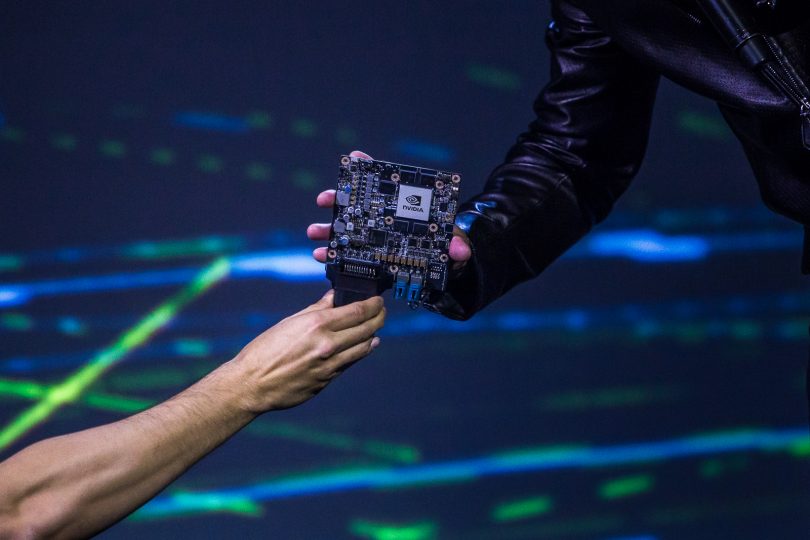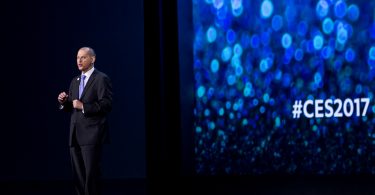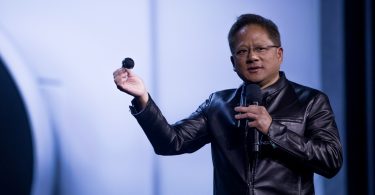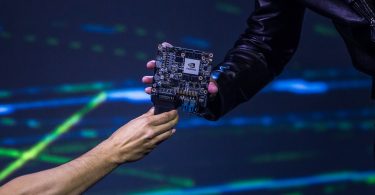By Charles Borsos
For BU News Service
NVIDIA, the largest manufacturer of GPUs (Graphics Processing Unit), presented several applications of their GPU technology at CES 2017 that could go far beyond computer games.
During his keynote address, the founder and CEO of NVIDIA, Jen Hsun Huang said that GPU-based supercomputers could “solve problems normal computers can’t solve.”
He spoke more specifically about the potential for GPUs to be used in Artificial Intelligence and deep learning capacities: Until recently, computers had a very hard time understanding patterns that humans could quite easily, from recognizing faces to understanding traffic conditions on the road. Huang also noted that nobody does Newtonian calculations while they are driving and a computer shouldn’t operate that way either.
And it was in driving specifically that Huang said that NVIDIA was looking to take its technology much further. Huang unveiled ‘Xavier,’ an AI Car Supercomputer that he said could run autonomous systems in cars. The computer was small enough for him to hold it in one hand as he continued the presentation, and they showed footage of their own proof-of-concept vehicle: the BB-8 driving around using the technology.
On the business side of autonomous cars, NVIDIA added to its well-known partnership with Tesla to take that company’s “autopilot” mode to the next level by announcing new partnerships with auto parts manufacturers ZF Friedrichshafen AG and Bosch to use GPU technology in their work with autonomous cars.
NVIDIA also announced its plans to produce what they called an “AI car” with Audi which they said would have more robust autonomous features. That car is planned for 2020.
Lastly, NVIDIA unveiled some products that would go on sale in the nearer future, the first of which was an online game-streaming service called GeForce Now. It uses supercomputing to allow consumers without gaming computers to play games on NVIDIA hardware through the Internet on their own devices. GeForce Now is set to go online in March.
NVIDIA also introduced the second iteration of its Shield streaming device, which will allow users to stream 4k content from partner companies. It supports HDR playback and features Google Assistant, which NVIDIA said was the first time that AI has been brought to the television screen.

